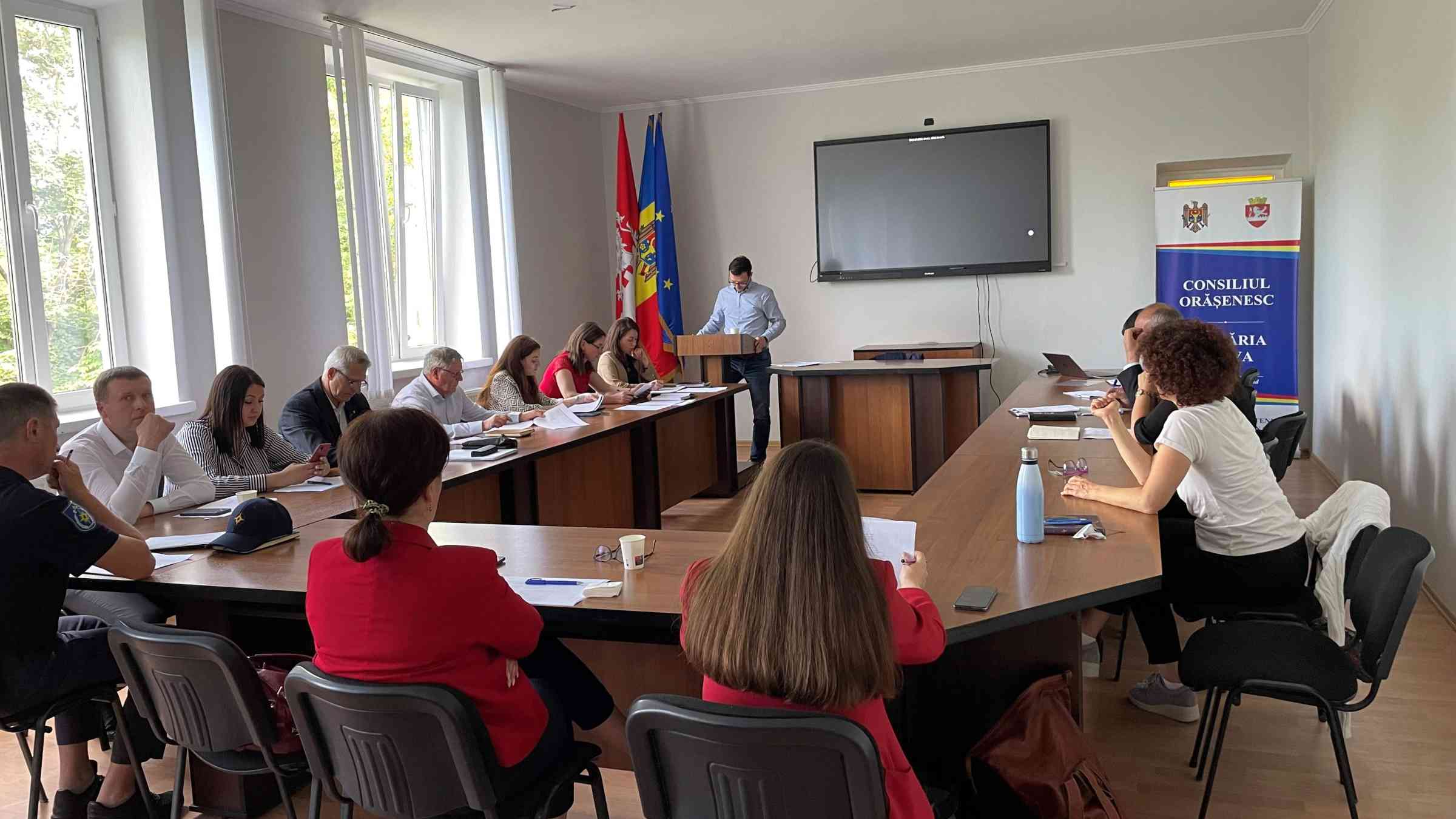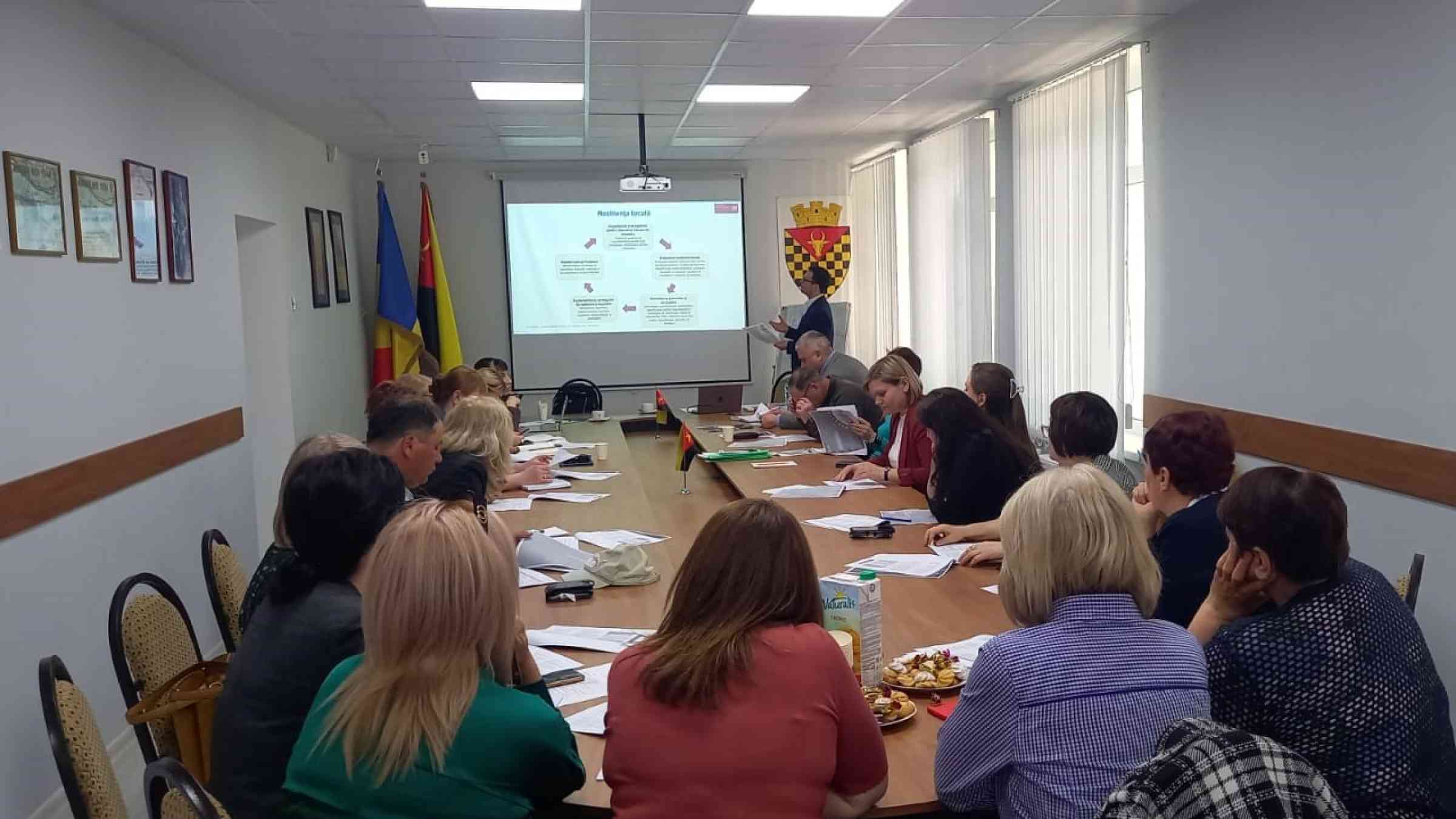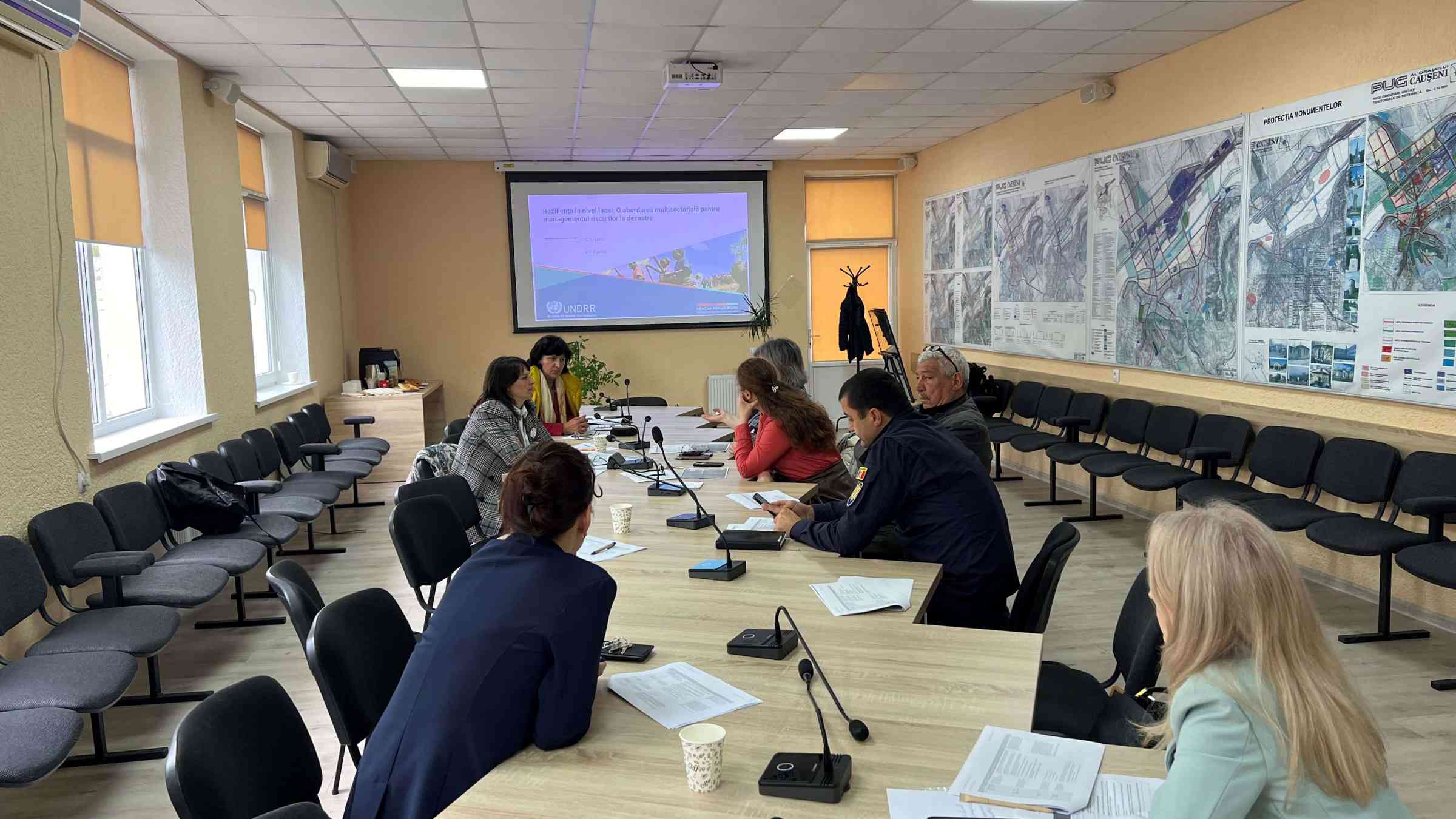Moldovan cities take steps to enter the 2030s with greater resilience

In April 2023, the Republic of Moldova experienced unprecedented rainfall, as reported by the State Hydrometeorological Service. According to the Emergency and Exceptional Situation Prevention and Management Program for 2022-2025, Moldova registers an average of 300 exceptional situations annually including violent storms, heavy rainfall, catastrophic floods, or heatwaves. The financial damage from these situations between 2012 and 2021 exceeded MDL 12 billion (approximately USD 680 million). Moreover, the Program anticipates an increase in the frequency and intensity of heatwaves, more intense rainfall, and heightened risks of flash flooding in the coming years.
To strengthen local preparedness and support cities in reducing risk and building resilience, the United Nations Office for Disaster Risk Reduction (UNDRR) Regional Office for Europe and Central Asia expanded its cooperation in 2024 with four Moldovan cities: Anenii-Noi, Căușeni, Leova, and Sîngera. During April and May of 2024, the UNDRR with the financial support of USAID BHA, organized workshops to conduct the Disaster Resilience City Scorecard. The workshops brought together public officials, representatives from medical and educational institutions, municipal companies, the decentralized office of the General Inspectorate for Emergency Situations and local civil society. The participants had constructive discussions and shared common issues and possible solutions.

Joint workshop with IOM in Sîngera.
A key aspect of the local workshops was the collaboration among UN agencies, particularly, UN Women and the International Organization for Migration (IOM). These joint activities were designed to assess the gender impact and mobility dimensions of crises, by focusing on the effects of displacement caused by disasters. This comprehensive approach helped to evaluate how inclusive disaster responses are, and whether they effectively address the specific vulnerabilities and needs of various populations affected by crises. The involvement of UN agencies specializing in gender and migration highlighted the benefits of collaboration and underlined the complex dynamics of crisis management and resilience building.
The results of the Scorecards will help establish a baseline measurement of overall resilience, increase awareness of resilience challenges, and facilitate discussions on investment priorities. This should energize the development of local policies or standalone resilience strategies aligned with the Sendai Framework.

Joint workshop with UN Women in Căușeni.
It is very encouraging to see an increasing number of Moldovan cities begin to take preparatory steps and actions against climate change and to reduce disaster risks. Particularly because local authorities are often underprepared, both in terms of human and financial resources, to adequately address emerging risks and vulnerabilities. There is a pressing need for central authorities, international donors, and development partners to focus more on empowering local governments with the necessary resources. This support is crucial for cities to invest in flood defenses, maintenance of critical infrastructure, and the implementation of green technologies. Only by proactively addressing these issues, Moldovan cities will be in the position to consolidate their social and economic development and enhance local resilience.

